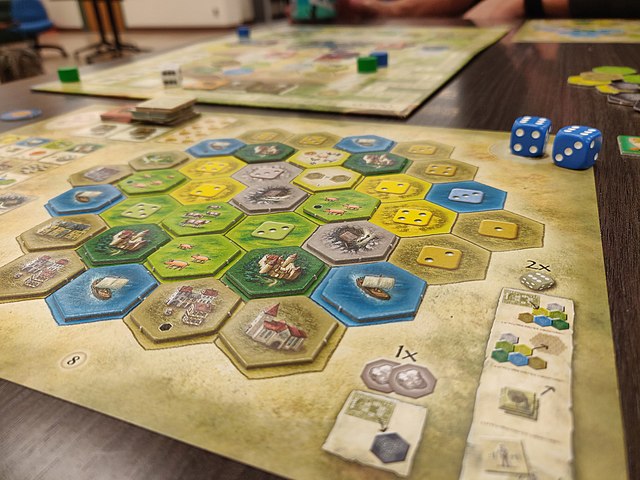How board games go hand-in-hand with children’s psychology
By ELI KELLEY — arts@theaggie.org
As someone with a lifelong love of board games, I’ve sometimes looked at my earlier years of game-playing with regret. Why had I wasted so much time playing “Snakes and Ladders?” And not just “Snakes and Ladders,” there’s a catalog’s worth of games — “Monopoly,” “The Game of Life” and “Sorry” to name a few — which had captivated me as a child that I now consider boring.
In comparison with games I enjoy playing today, children’s games have little room for strategy, feature only the simplest kinds of interaction with your fellow players and determine the winner by little more than chance. However, there’s something to these games that once engaged me and countless other children. In thinking about this issue, I’ve identified several reasons why, for children, these board games continue to hold meaning.
Before knowing why children’s board games work, it’s important to know how they work. For starters, children’s board games feature large amounts of randomness. The winner of “Snakes and Ladders,” for example, is based entirely on what numbers come up on the dice. “Monopoly” and “The Game of Life” have some amount of player choice and therefore player strategy and yet, still, are heavily based on luck. I have never heard someone describe themselves as skilled at “The Game of Life” or “Monopoly,” in the same way someone would be skilled at chess.
As for why this matters, having a game based on luck evens the playing field. By being random, children’s board games are also egalitarian. A child has an equal chance of winning “Snakes and Ladders” if they’re playing with their parents, their best friend or an AI superintelligence. This can be empowering to children — in a world where adults hold the power, this is the first real chance a child has to be an adult’s equal.
These board games being so luck-dependent also keeps the rules simple. In many of these games, all a player does is roll a die and move their game piece that many spaces. Such rules are easy for children to learn and remember, a necessary feature as their brains aren’t developed enough to think through complex rules.
Only starting at around age 12 are children able to fully reason out abstract hypotheticals, according to foundational psychologist Jean Piaget. From ages seven to 11, their reasoning is more logical and rigid. Without the ability to think through multiple hypothetical futures, children have difficulty making long-term plans and strategies. Their brains aren’t well equipped to play complex 10-hour board games. Games with a simple and rigid structure like “Monopoly” are better suited to meet children where they’re at.
Children’s minds don’t develop passively, according to another influential psychologist, Lev Vygotsky. A child can achieve more advanced kinds of thinking at an earlier age through teaching and guidance. Mentors provide the “scaffolding” that children use to build their growing mental abilities. One of the most important roles of children’s board games is to help children learn new skills, to be that scaffolding.
Children’s board games are educational in several distinct ways. In “Snakes and Ladders,” children move their pieces forward based on the number on a die roll, which helps them both learn and count numbers. “Monopoly” can introduce children to the basics of negotiation as they make deals with other players. “The Game of Life” teaches not only skills but cultural values, as children play through a simulation of an archetypal middle-class American life.
Little of what makes these games good for children makes them fun for adults. Children’s board games are just that — games made for children. It’s a mistake, however, to assume that they’re merely a watered-down version of adult games. Children’s board games are good at being games for kids. I still dread “Monopoly,” but I’d play it for the sake of a young person who was interested. Whether or not they go on to enjoy board games later in life, nearly all children could benefit from what children’s board games have to offer.
Written by: Eli Kelley — arts@theaggie.org





